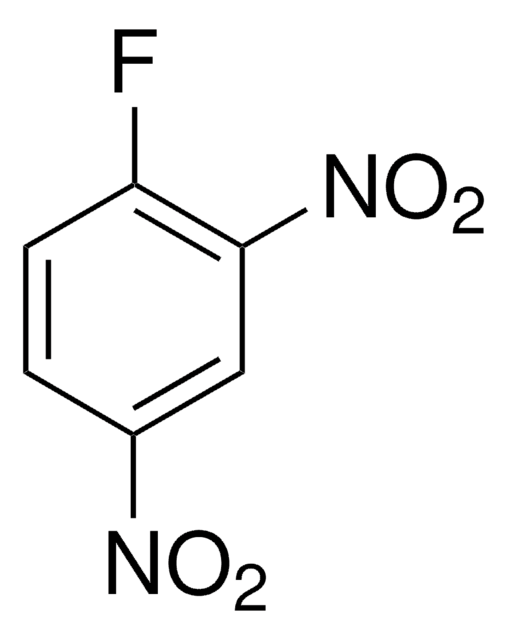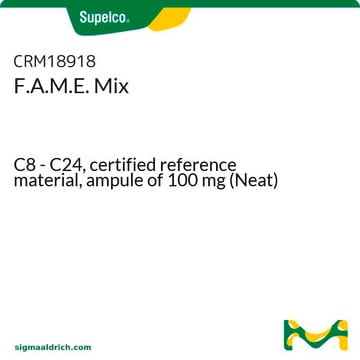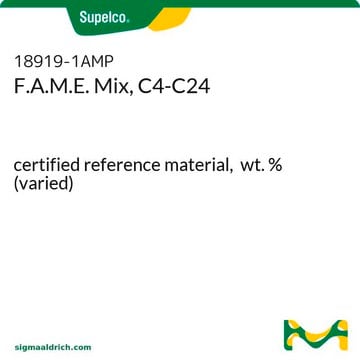42085
1-Fluoro-2,4-dinitrobenzene
purum p.a., ≥98.0% (GC)
Synonym(s):
2,4-Dinitro-1-fluorobenzene, DNFB, DNPF, FDNB, Sanger reagent
About This Item
Recommended Products
grade
purum p.a.
Quality Level
Assay
≥98.0% (GC)
form
liquid
refractive index
n20/D 1.569 (lit.)
bp
178 °C/25 mmHg (lit.)
mp
25-27 °C (lit.)
density
1.482 g/mL at 25 °C (lit.)
cation traces
Ca: ≤50 mg/kg
Cd: ≤50 mg/kg
Co: ≤50 mg/kg
Cu: ≤50 mg/kg
Fe: ≤50 mg/kg
K: ≤100 mg/kg
Na: ≤100 mg/kg
Ni: ≤50 mg/kg
Pb: ≤50 mg/kg
Zn: ≤50 mg/kg
storage temp.
2-8°C
SMILES string
[O-][N+](=O)c1ccc(F)c(c1)[N+]([O-])=O
InChI
1S/C6H3FN2O4/c7-5-2-1-4(8(10)11)3-6(5)9(12)13/h1-3H
InChI key
LOTKRQAVGJMPNV-UHFFFAOYSA-N
Looking for similar products? Visit Product Comparison Guide
General description
Application
- For aminoglycoside compounds such as amikacine, tobramycine, gentamycine, sisomycine, neamine, neomycine-B and neomycine-C.
- To examine the kinetic analysis and analytical uses of reaction with thiols in the presence of several surfactants.
Signal Word
Warning
Hazard Statements
Precautionary Statements
Hazard Classifications
Acute Tox. 4 Oral - Eye Irrit. 2 - Skin Irrit. 2 - Skin Sens. 1 - STOT RE 2 - STOT SE 3
Target Organs
Respiratory system
Storage Class Code
11 - Combustible Solids
WGK
WGK 3
Flash Point(F)
327.2 °F
Flash Point(C)
164 °C
Personal Protective Equipment
Certificates of Analysis (COA)
Search for Certificates of Analysis (COA) by entering the products Lot/Batch Number. Lot and Batch Numbers can be found on a product’s label following the words ‘Lot’ or ‘Batch’.
Already Own This Product?
Find documentation for the products that you have recently purchased in the Document Library.
Customers Also Viewed
Our team of scientists has experience in all areas of research including Life Science, Material Science, Chemical Synthesis, Chromatography, Analytical and many others.
Contact Technical Service
















